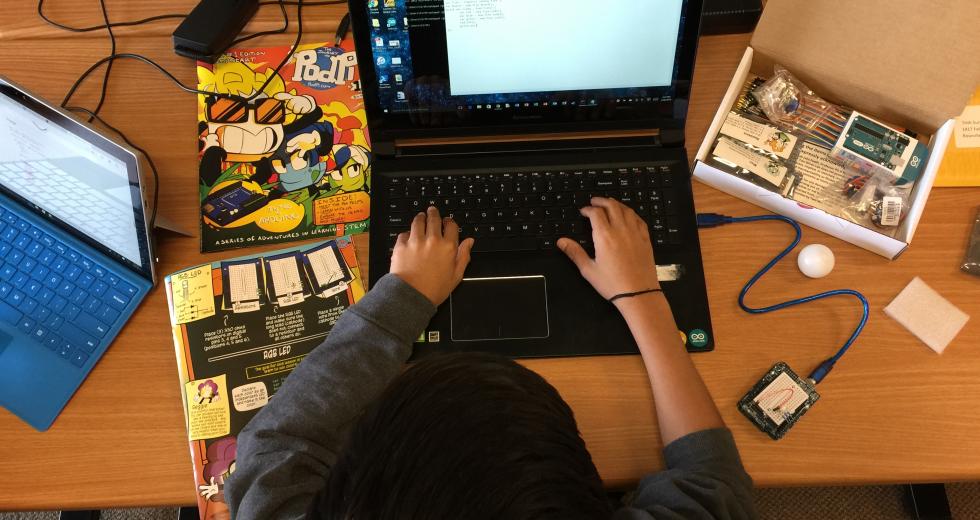Entrepreneur Stephane Come feels that “fun” products and games currently on the market are short-changing children. That’s because they don’t often show kids that it’s OK to fail. Instead, Come wishes that children would be challenged and taught that getting things wrong is an acceptable part of the process. It isn’t necessary to come to the solution instantly.
That’s where his latest project, PodPi comes in. Come is the founder and chief technology officer of Sacramento-based LCS Technologies, a consulting firm that in 2011 made the Inc. 500 list. Earlier this year, he launched the monthly comic subscription PodPi, which uses electronics and story-based lessons to encourage youth ages 9 to 12 to explore coding and other STEM topics.
(Photo courtesy Stephane Come)
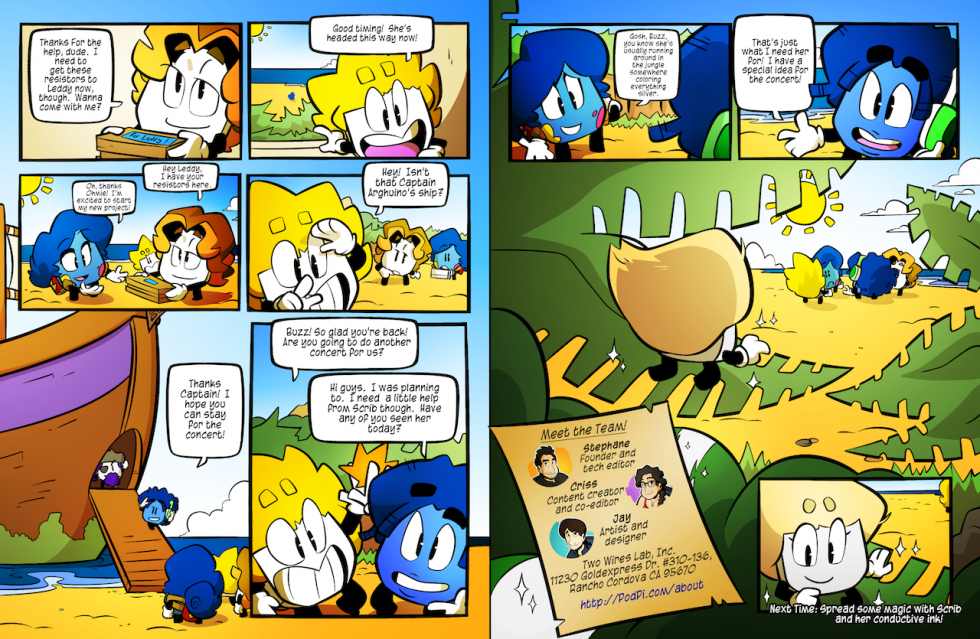
Bucking the oft-touted conventional wisdom that digital is the route to trod and print is long past dead, PodPi releases as a physical comic. It was originally going to be digital, but Come says the print route was more financially feasible. Being print also separates PodPi from other major players in the space, and means the comic doesn’t have to compete for kid’s mindshare during video-game time. Come has also done tests with the printed comic versus on an iPad, and found that kids remember more information if they read the physical version. “When it’s in print, they study it,” Come says.
Every month’s box comes with a comic and a component kit that includes everything needed to complete the task in the story. The kits do require a computer, using open-source software. The topics covered in PodPi aren’t simple, and aren’t just a list of step-by-step instructions for children to follow. That’s why Come frames them as part of a story.
(Photo courtesy Stephane Come)
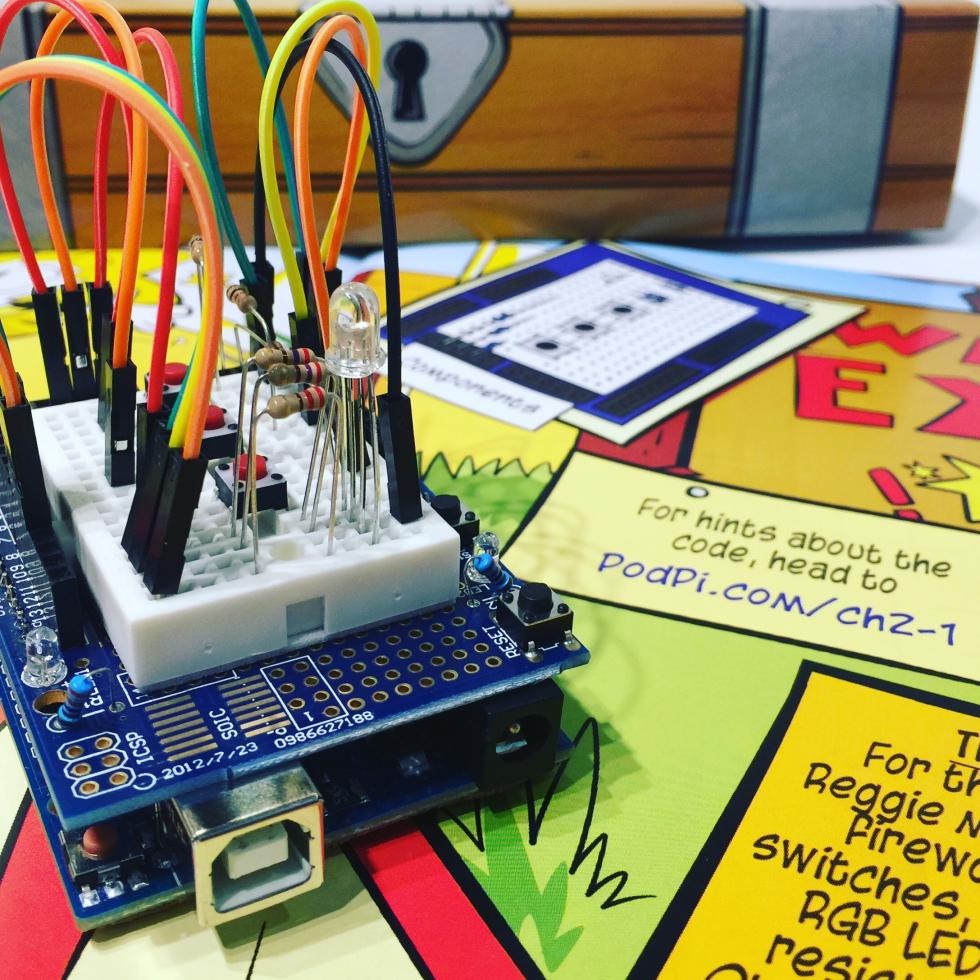
“The story element is: How are you going to teach a kid about serial interface, about binary protocols, about things like that?” Come says. In the comics, a story manifests in different ways. For example, birds act as cartoon stand-ins for communication protocols like IVC, Serial and SPI. Come says that because the technical elements are created in conjunction with a story, kids are “more likely to remember it.”
The stories have been designed with the children audience in mind. One character, an RGB LED (a LED that can produce different colors by combining its individual lights) named Reggie, was specifically designed to start off lacking confidence, to mirror the way kids beginning the series might feel. Reggie then grows and become more confident as the story progresses. “They identify them self with one of these characters, and that positive message helps them come out of their shell and say ‘Oh, I can do that too,’” Come says.
(Photo courtesy Stephane Come)
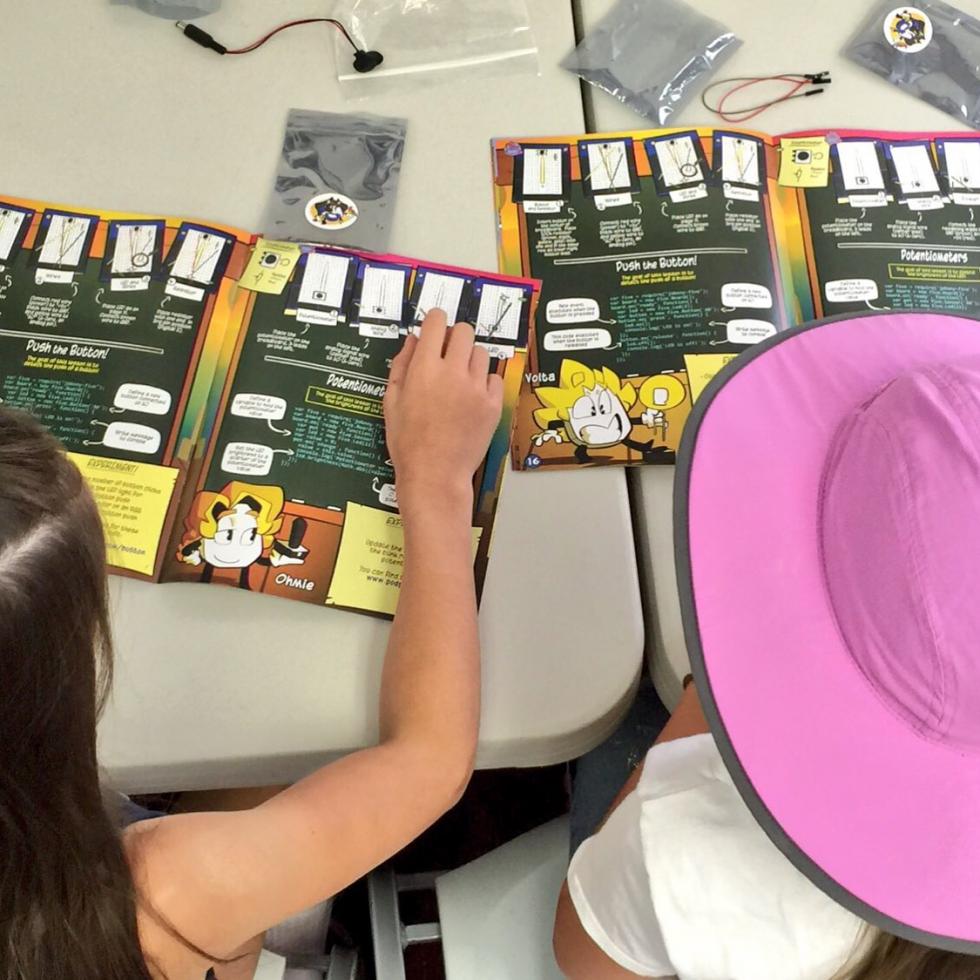
For the production of each issue, Come handles the technical aspects, while his wife, Criss, writes the story, with Jay Boulton rounding out the main trio as the graphic artist/designer (others help on inking, coloring and the technical details), for the now 32-page monthly issue.
Girls make up half of PodPi’s readership. This is reflected in the comics, where half of the characters are female. “I always hear ‘Girls are not interested in stuff like that.” That’s not true,” Come says. Instead, Come has found that boys and girls each gravitate toward different parts of the processes — boys like buttons, meters and motors, while girls lean toward LEDs and sensors — and that including aspects that both genders enjoy is something the team remembers during the design process.
Cayce Beames, co-founder of The Computer Club, a technology group that meets monthly in Auburn, has used PodPi since April, and found that children are drawn to palpable elements, while the programming aspects have led to some “struggle” and been “hit or miss.” Despite that (and a few mistakes the group has discovered) Beames still plans to continue using them. “There haven’t been really any bad experiences at all, it’s well written … I like that the challenges cause the kids to think, and they always need a little bit of guidance,” Beames says.
(Photo courtesy Stephane Come)
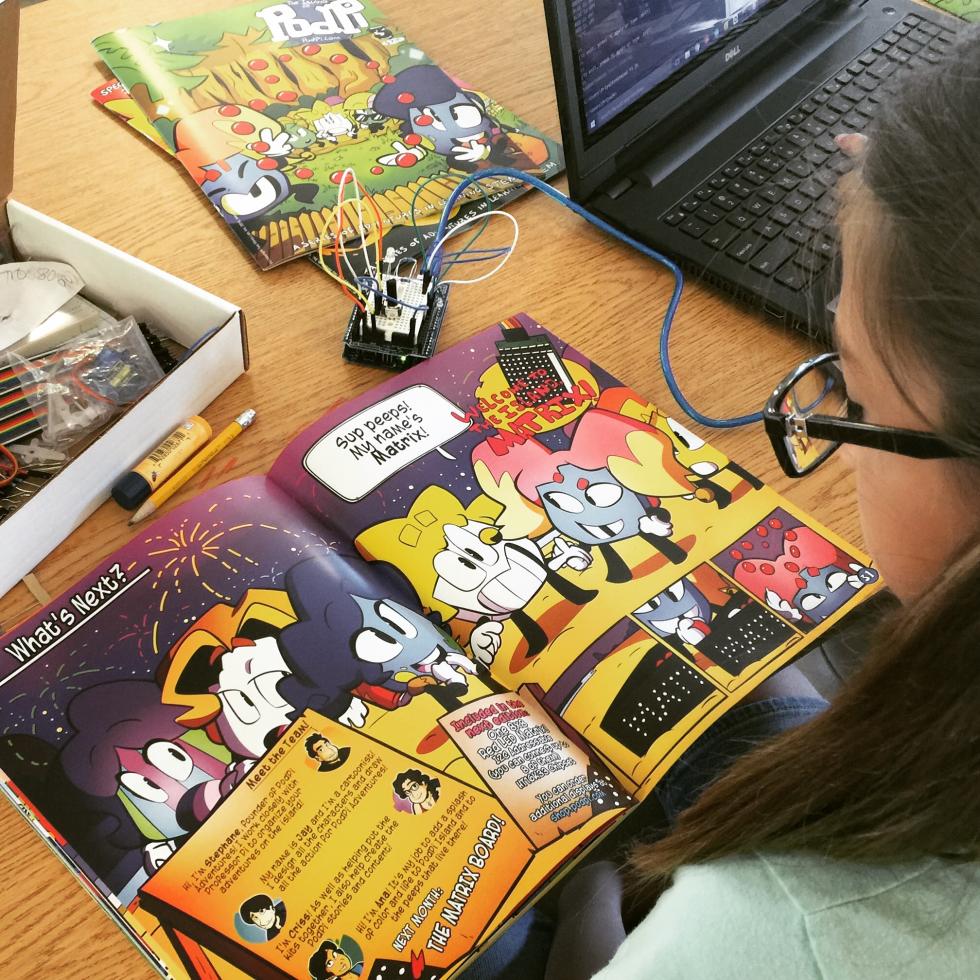
PodPi is also being used at Gold River Discovery Center and Visions in Education, and also pending approval with a few charter schools. “The PodPi program is a wonderful enhancement to our middle school curriculum,” Aliceon Sloss, a math and science teacher at Gold River says in an email. “The program sparks interest in coding and technology through hands-on, inquiry-based, problem-solving activities. Students are motivated to work in teams and enjoy the challenges the program provides. PodPi also shows the value of industry experts using their ingenuity and innovation to enrich the classroom experience and stimulate inquisitive minds, possibly leading kids to a future in science and technology.”
For Come, it’s all part of helping kids see that sometimes it can be acceptable to fail as part of the learning process.



